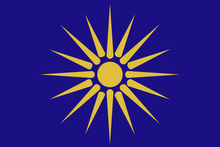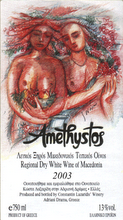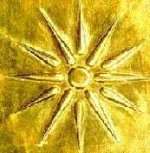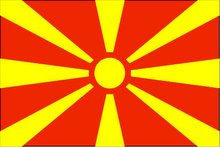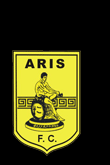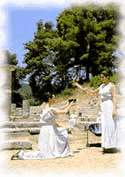Orthodox or Turc?

From the very beginning of the foundation of the Orthodoxy church through the East Roman Empire, his authority was asserted by persecuting everything was representing the Greek/Hellenic culture and destroyed all Ancient Greek monuments and sculptures (see Theodosian, Justinian Codes). Even the Roman Catholic Church was much more tolerating on this subject and through the renaissance period the classical aesthetics and philosophy of Ancient Greeks appeared again to the world. One can contemplate master pieces of renaissance in the Vatican museum. On the other hand, the Orthodox Church through the adoration of icons and the banishment of anything Greek by extensive persecutions and physical elimination of the remaining Greeks have contributed to the decline of the Empire and his recapitulation to the Turcs.
The Orthodox Patriarchs throughout Byzantium period and Ottoman rule have tried to convince Greeks that since they are Christians they are not Greeks but Romioi or Romans. Later at the end of the Ottoman rule, Fanari, the ecumenical Patriarchate at Istanbul when he saw that Greeks named their children after Ancient Greek names and define themselves as Greek/Hellenes tried at several times to stop the revolution by excommunicating all our revolutionary heroes of the Greek Independence Revolution!
Τα υβριστικά κατά των Ελλήνων επίσημα κείμενα της Ορθοδοξίας. - Όσα χρησιμοποιεί και εγκρίνει σήμερα η Εκκλησία της Ελλάδος, σσ. 17-22
Οι επίσημες σημερινές χριστιανικές ύβρεις κατά του Μ. Αλεξάνδρου και των άλλων βασιλέων
Taliban or Orthodox?

 After the September 11, 2001 attacks on the World Trade Center, parts of the public were shocked to hear the Archbishop attribute the attacks to "despondent men" who acted "out of despair caused by the injustices of the Great Powers". Critics attacked the archbishop for what they considered to constitute an underhanded justification of the terrorist act.
After the September 11, 2001 attacks on the World Trade Center, parts of the public were shocked to hear the Archbishop attribute the attacks to "despondent men" who acted "out of despair caused by the injustices of the Great Powers". Critics attacked the archbishop for what they considered to constitute an underhanded justification of the terrorist act.Girlfriend or sister?
 During 2005, Greece has been rocked by an apocalypse of journalistic revelations about the endemic graft and corruption within the legal system, the Greek Orthodox church, and their intertwined links.
During 2005, Greece has been rocked by an apocalypse of journalistic revelations about the endemic graft and corruption within the legal system, the Greek Orthodox church, and their intertwined links.At least 10 judges have been earmarked for dismissal and prosecution by the president and a special investigatory working group of the Court of Cessations because of their involvement in fixing court case outcomes. Greek justice, long criticised for being cumbersome and slow, has moved very swiftly against those within its own ranks who have disgraced their office. A further 30 are still being investigated and several journalists have been called to testify and present the results of their ground-breaking investigations. Quite a few of these judges had underground links to a priest, Iakovos Yosakis, currently being held in prison while the investigation proceeds, who it appears acted as the middle man for passing on bribes from lawyers and their clients to the judges. Yosakis was no stranger to controversy, since he has on many occasions been the subject of embezzlement allegations, both in Greece and in a parish in Chicago, but was never disciplined for his behaviour by the church. He narrowly escaped an arrest warrant in the US by taking flight to Panama with the help of church contacts. It was revealed that one judge with whom he had contact allegedly was a pimp for Russian prostitutes.
 And the revelations fuelled by secret phone taps and hidden cameras continue. It is also alleged that the metropolitan bishop of Athens had millions in private bank accounts, tried to influence judges, had at least three male lovers despite his vow of chastity, and also had built an illegal villa by the sea in complete breach of building code regulations. Swift action was taken against him by Christodoulos, the Archbishop of Athens and All of Greece. He has been suspended for six months while the matter is further investigated, and it appears almost a certainty that he will be defrocked.
And the revelations fuelled by secret phone taps and hidden cameras continue. It is also alleged that the metropolitan bishop of Athens had millions in private bank accounts, tried to influence judges, had at least three male lovers despite his vow of chastity, and also had built an illegal villa by the sea in complete breach of building code regulations. Swift action was taken against him by Christodoulos, the Archbishop of Athens and All of Greece. He has been suspended for six months while the matter is further investigated, and it appears almost a certainty that he will be defrocked.The new centre-right New Democracy government has been actively pursuing a campaign against corruption in the public service and cleaning up government procurements, infrastructure contacts and defence spending. This zero tolerance for corruption policy emboldened investigative journalists, who, armed with hidden cameras and recording devices, were able to crack the court case fixing ring. Of course in Greece, like many countries in the region, it is illegal for journalists to use hidden cameras and tapping devices, but the evidence can be taken into consideration in any court case or prosecution, if the evidence is deemed to be in the public interest, without any heavy- handed sanction against the journalists. The involvement of the clergy in the case fixing ring sparked further investigation into the Byzantine intrigues of the church hierarchy. A whole container load of tapes detailing intimate conversations between certain members of the upper most church hierarchy, the synod, has come to the fore and been aired. Most religiously sensitive Greeks have been shocked and revolted by what they have been seeing and hearing on their television sets over the past three weeks and now are publicly demanding that the church undergo a cathartic process and throw out corrupt church leaders. For the first time in history more than half of Greeks surveyed want a long overdue separation of church and state.
However, some sceptics doubt whether Archbishop Christodoulos will be able to lead the charge against church corruption that has rocked the foundations of the institution. He himself has admitted to authoring a letter of recommendation for a certain drug dealer who later surfaced in Jerusalem to influence the outcome of the appointment of the Greek orthodox metropolitan there. Babilis, who has used several names and different passports, swore on oath that he was allegedly sent by the Archbishop to help the current metropolitan of Jerusalem to win office and has admitted to doctoring and releasing pornographic material to smear the main contender for the position and ensure the Archbishop’s man got the role. Since then, Babilis has been linked by the press to secret services like Mossad and the CIA. According to reports, with the story bordering on a thriller, this same man won Greek police and interior ministry contracts to supply bullet proof vest while an Interpol warrant was still outstanding for his arrest. The Archbishop, despite his vow to clean up the church, is now wounded in public opinion polls with less legitimacy in the eyes of most Greeks. He also has to contend with a powerful faction in the church synod that is completely embroiled in dubious practices that will not easily relinquish their positions. Nowdays the Orthodox Church doesn’t seem to remember any of their scandals and openly support the conservative government who will trust at their hands a great part of the European Community financial package for the development of the country.
.jpg)



 As many people knows the dominant religion in Greece is ruled by the Orthodox Church. However, the revival of the Olympus Gods religion start to appear in the modern greek society over the
As many people knows the dominant religion in Greece is ruled by the Orthodox Church. However, the revival of the Olympus Gods religion start to appear in the modern greek society over the 











